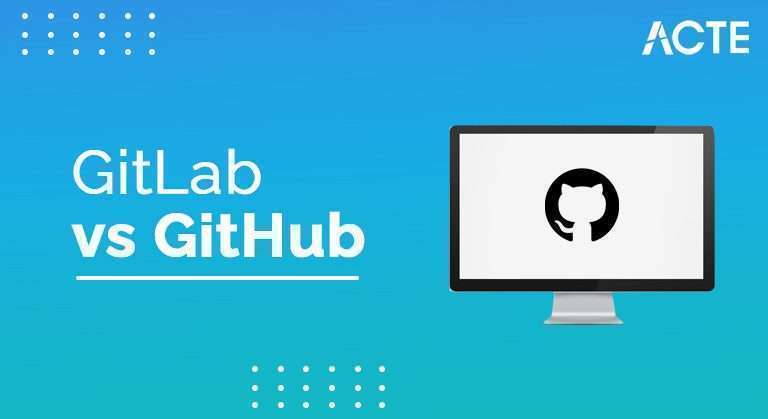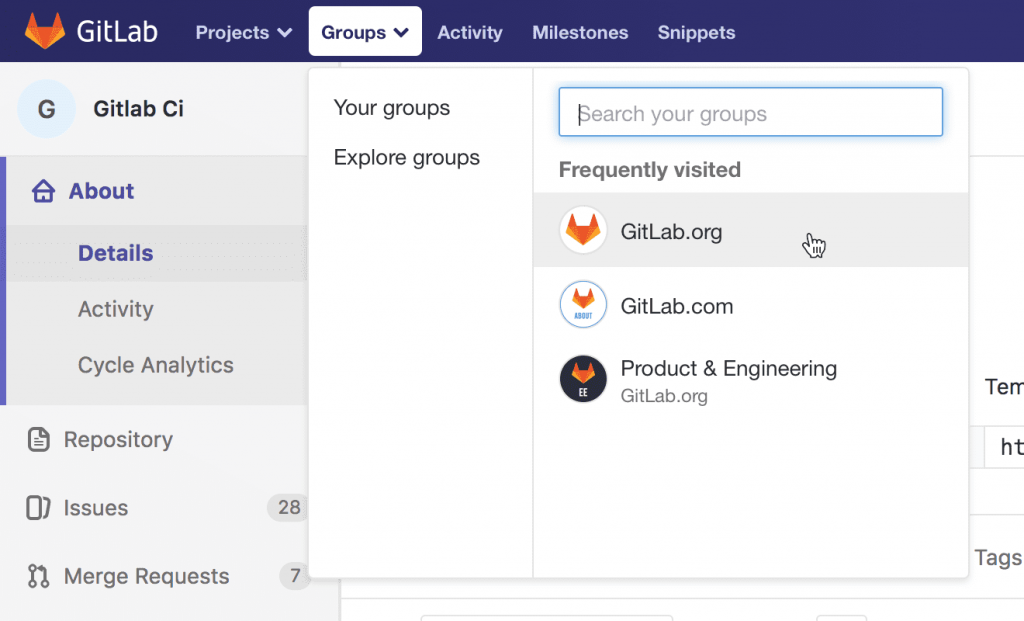
Git is a free and open source distributed version control system designed to handle everything from small to large projects with speed and efficiency. GitLab is a Git-based fully integrated platform for software development. Besides Git’s functionalities, GitLab has a lot of powerful features to enhance your workflow.
- Introduction
- The Basics of Git and Cloud-Based Git Repositories
- GitLab versus GitHub: The Basics
- GitLab versus GitHub: Similarities
- GitLab for CI
- GitHub Flow versus GitLab Flow
- Complete Platform versus Marketplace
- GitLab versus GitHub: Which Is The Best Option?
- Why Is GitHub More Popular than GitLab?
- Conclusion
- Git has turned into a primary instrument for designers in new companies, undertakings, and even government positions. You can likewise utilize Git at Kinsta. That is the reason picking the right apparatus for your group is so significant. How about we do a profound jump into GitLab and GitHub contrasts, their advantages and disservices, and which you ought to pick.
Introduction :-
Both GitLab and GitHub are advancement stages with a solid spotlight on the open source Git framework for circulated form control. An incredible 87.2% of studied designers depend on Git for rendition control, joint effort, and smoother organization.
- What separates it from customary rendition control is that you can chip away at various branch variants of the product and oversee them all simultaneously. You would then be able to test them by blending them with an arranging branch, and afterward with the live form when you conclude a superior variation.
- Git branches (Source) Just with Git do you have this opportunity to chip away at a wide assortment of forms immediately. It’s an unquestionable requirement for any group that needs to include a based turn of events.
- With Git, all of this happens locally on your PC. In any case, you can likewise ask for and give admittance to different engineers physically—over a LAN, for instance.
- Git shared storehouse (Source) When working with bigger remote or circulated groups, most organizations go to cloud-based arrangements. Enter GitLab and GitHub. They offer limitless cloud-based capacity for stores. Engineers from everywhere the world can undoubtedly work together on code. Furthermore they can do it without setting up a virtual LAN or physically sharing stores. Yet, cloud-based Git stores like GitHub and GitLab go past the fundamental Git usefulness. They likewise incorporate tasks of the executives, cooperation, and sending apparatuses to assist with further developing the improvement work process.
The Basics of Git and Cloud-Based Git Repositories :-
Git is an open source adaptation control framework (VCS) that allows you to save “previews” of a product project. Fundamentally, it monitors every one of the progressions you make to any program.
- GitLab landing page
- GitLab is a cloud-based Git and DevOps stage that helps designers screen, test, and convey their code.
- A cloud Git vault used to be the primary selling point of GitLab. Yet, the stage has advanced past its straightforward beginnings. Today, GitLab offers a wide scope of DevOps highlights, as ceaseless combination, security, and even application arrangement devices.
- GitLab began as a self-facilitated open source option in contrast to GitHub. It currently offers cloud-based free and paid SaaS plans also.
- It likewise gives you fundamental undertakings to screen and control your colleagues. It’s not simply a form control framework for your product’s source code.
GitLab versus GitHub: The Basics
What Is GitLab?

- GitHub landing page
- GitHub is one of the first cloud-based Git stages that allows engineers to host and screen their code changes. It has likewise advanced to turn into an out and out improvement stage.
- Yet, it’s to a lesser extent an “instant” bundle than GitLab, rather than giving engineers the choice to carry out applications and mixes openly through the GitHub commercial center.
- The emphasis is on using the lively GitHub people group and allowing them to contribute the usefulness they’re absent.
What Is GitHub?
- No, the two web-based administrations are presented by totally various organizations. GitLab Inc. is an exclusive, completely remote organization with 1,303 staff individuals.
- GitHub is a kid organization of Microsoft, with its fundamental office in San Francisco and 1,600+ representatives around the world.
- However a regularly posed inquiry—and misguided judgment—the two organizations are totally inconsequential, other than being contenders. It’s similar to imagining that Coca-Cola and Pepsi are a similar organization.
Are GitLab and GitHub the Same Company?
GitLab versus GitHub: Similarities
OK, so presently we realize that regardless of offering—from the get go—fundamentally the same as administrations, the organizations are 100% inconsequential.
Then, how about we check out a portion of the more explicit similitudes past the surface degree of name and landing page. We’ll begin with a
- profound plunge into the elements.
GitLab versus GitHub: Key Differences
As you likely guessed from their names, GitLab and GitHub share more practically speaking than not.However, that doesn’t mean they’re without their disparities. In this segment, we’ll cover the fundamental errors between the two stages.
Constant Integration
Maybe the main contrast in client experience is GitLab’s devotion to CI (ceaseless joining) and a DevOps work process. GitLab CI instruments let you fabricate, stage, and convey code consequently without depending on manual updates or burdensome, exclusively assembled mixes.
- Working just inside GitLab, your advancement group can zero in on pushing minor updates on different occasions each day, rather than clustering them into large deliveries.
- One of the pivotal things that gets this going is the robotized testing instrument that consequently examines code for potential security chances. While you can set up a CI/CD work process with GitHub, you want to work with an outsider CI device like TravisCI or CircleCI. You don’t have a similar foundation of CI elements that collaborate straightforwardly with your GitHub store.
GitLab for CI
Assuming you as of now utilize a PaaS arrangement like facilitated Kubernetes, the GitLab incorporation will allow you to convey, stage, test, and scale your applications consequently.
- GitHub advocates a fast, highlight centered advancement way to deal with combining (incorporate) new branches with the expert branch. This work process is ideally suited for more modest Agile groups and activities.
- The expert branch is dependably prepared to send, guaranteeing that you can rapidly reestablish the state of affairs assuming something turns out badly. You can move back to the past rendition right away.
- In the GitLab work process, you make various stable branches past the expert, normally essentially creation and pre-creation. That implies a different advance testing process where a solitary code survey upon the union solicitation isn’t sufficient.
- For more modest groups, it can dial back the interaction until another element is live underway. Be that as it may, assuming you have a devoted QA group, it’s a method for allowing your RandD to collaborate uninhibitedly on new elements without agonizing over testing each and every moment code change.
- Some reason that this makes GitLab the greater security-disapproved of Git stage, yet GitHub likewise upholds a similar work process. It’s simply that it doesn’t authoritatively suggest it.
- In the GitLab work process, you make different stable branches past the expert, for the most part essentially creation and pre-creation. That implies a numerous progression testing process where a solitary code audit upon the consolidation demand isn’t sufficient.
- For more modest groups, it can dial back the interaction until another component is live underway. However, in the event that you have a devoted QA group, it’s a method for allowing your RandD to cooperate openly on new highlights without agonizing over testing each and every moment code change.
- Some reason that this makes GitLab the greater security-disapproved of Git stage, however GitHub additionally upholds a similar work process. It’s simply that it doesn’t authoritatively suggest it.
GitHub Flow versus GitLab Flow
While the fundamental Git innovation and elements are basically indistinguishable, the suggested work process isn’t something similar. Way off the mark.
GitHub stresses speed, while GitLab underlines unwavering quality. That is the significance of the contrast between the two cloud storehouse stages.
GitHub stream versus GitLab stream (Source)
- That doesn’t mean it’s totally drained of combinations. GitLab maintains reconciliations with Asana, Jira, Microsoft Teams, Slack, Gmail, and 30+ other applications and stages.
- Yet, while you have choices, they’re significantly more restricted than assuming you go with GitHub. GitHub at present has 374 free
- applications in its commercial center, with countless paid choices for sure.
Complete Platform versus Marketplace
GitLab has adopted the strategy of a total, bundled stage, rather than giving everybody a decision to construct their foundation with various applications.
- As far as out-of-the-container usefulness and self-facilitating, GitLab ends up as the winner. However, GitHub is in a remarkable situation as the market chief. It has a much larger number of reconciliations and applications. For self-facilitated private archives, GitLab is the better decision. You can get everything rolling without paying any month to month membership charge.
- The two choices are incredible for open source projects, with GitLab offering premium highlights free of charge and GitHub offering admittance to a bigger pool of dynamic open source engineers.
- For business projects, GitHub offers an essentially less expensive venture plan. Assuming you’re hoping to get into DevOps, GitLab is the more smart and logical less expensive decision. (You can begin for nothing without depending on some other paid administrations.)
- It likewise relies upon what instruments your groups as of now utilize and have dominated. Assuming GitLab doesn’t offer a mix with an apparatus you use routinely, yet GitHub does, that will settle on it the undeniable decision for you.
GitLab versus GitHub: Which Is The Best Option?
Tragically, as most things throughout everyday life, there’s no obvious “most ideal decision for everybody” here. It relies upon your group, bigger association, objectives, and one of a kind use cases.
- Yet, with persistent combination highlights, and a free choice for private, self-facilitated servers, GitLab is beginning to make up for lost time. As per one review, GitLab acquired a 4.6% portion of the overall industry from 2018–19, while GitHub dropped by 0.4%. However, all things considered, in the most recent 2020 Stack Overflow designer overview, 82.8% of respondents say they use GitHub, and just 37% say they use GitLab.
- Code coordinated effort instruments utilization (Source) While GitHub is as yet the default decision for new designers, that is gradually changing as GitLab forms into a particular stage with novel elements and advantages.
- 87.2% of designers depend on Git for rendition control, joint effort, and smoother sending.
Why Is GitHub More Popular than GitLab?
One of the principal reasons GitHub is more well known than GitLab is that GitHub had an early advantage. It was dispatched in 2008, while GitLab began as an open source project in 2011.
Conclusion
As a designer in 2021, you can’t easily overlook instruments like Git or significant cloud vault suppliers like GitHub and GitLab.The greater part of engineers, groups, and organizations utilize these apparatuses to guarantee that each piece of code is surveyed cautiously prior to going live, and that no one’s commitment disappears.While the contrasts between the devices appear to be insignificant at the surface, the primary distinction is this: GitLab offers an extensive DevOps stage. Conversely, GitHub offers profound extensibility through its application commercial center.




